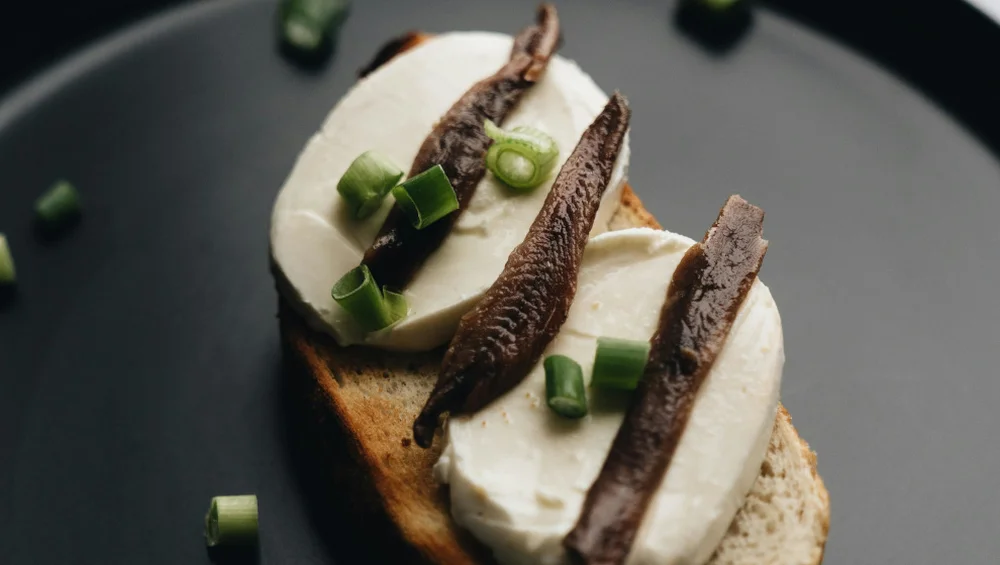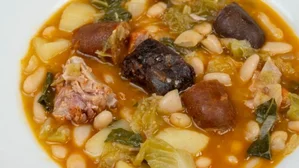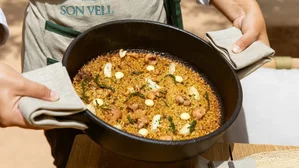Cantabrian Anchovies: A Delicacy Steeped in Tradition and Flavor

In the heart of the Cantabrian Sea, a culinary treasure has been perfected over centuries: the Cantabrian anchovy. This small, yet potent fish, has become an integral part of Spanish gastronomy, particularly in the region of Cantabria.
A Rich History
The tradition of anchovy preservation in Cantabria dates back to ancient times. The Romans, known for their sophisticated culinary practices, were among the first to appreciate the anchovy's unique flavor and nutritional value. They produced a fish sauce called garum, which was a staple condiment in Roman cuisine, and archaeological evidence suggests that anchovies were a primary ingredient in this sauce[4].
Modern-Day Production
Today, companies like Arlequín Preserves in Santoña continue this legacy with meticulous care. Arlequín's Platinum Series Cantabrian Anchovy is a limited edition of only 4500 units, showcasing the highest quality anchovies from the Cantabrian Sea. These anchovies are hand-selected, medium-sized, and undergo a rigorous process involving maturation in a salty medium, followed by hand-cleaning and preservation in premium extra virgin olive oil[1].
Artisanal Craftsmanship
The process of preparing these anchovies is as much an art as it is a science. The raw material, Engraulis encrasicolus, arrives fresh at the facilities in Santoña, where it is subjected to a careful maturation process. The anchovies are then hand-cleaned and packed in round cans with an easy-open lid, ensuring that the quality of the product is visible and accessible to consumers[1].
Nutritional and Culinary Value
Cantabrian anchovies are not only a delicacy but also a nutritious addition to any diet. They are rich in Omega-3 fatty acids, proteins, iron, potassium, calcium, and vitamins A and B. With their low calorie and high protein content, they are an essential component of a healthy diet[1].
Cultural Significance
Anchovies have played a significant role in various cultural and historical contexts. In Spain, they are a staple in tapas culture, often served as part of small dishes in tabernas. The association of anchovies with alcohol is well-documented, and they have been a favorite among vintners and in speakeasies during Prohibition America[4].
Celebrating Local Traditions
In Cantabria, the fishing season and local festivals highlight the importance of anchovies. For instance, the Getaria fleet, known for its artisanal fishing practices, prepares for various fishing campaigns throughout the year, including mackerel fishing in March. These local traditions are celebrated in events such as San Antón Day in Getaria, which has evolved into Txakoli Day, honoring the local wine and seafood[2].
Conclusion
Cantabrian anchovies represent a blend of tradition, craftsmanship, and culinary excellence. Whether enjoyed as a delicacy in a fine dining setting or as a simple yet flavorful addition to a home meal, these anchovies continue to captivate palates around the world. For expats in Spain, experiencing the rich flavor and cultural significance of Cantabrian anchovies is a must, offering a deeper connection to the region's history and gastronomy.
Related Stories

Discovering the Flavors of Cantabria: The Cocido Montañés
Explore the heart of Cantabria's culinary heritage with the cocido montañés, a traditional stew that's a staple of local cuisine and a symbol of regional identity.

Spanish Dining Preferences: Quality of Rice Tops the List for Restaurant Choices
79% of Spaniards prioritize rice quality in restaurants, underscoring its pivotal role in Spanish cuisine and dining preferences.

Spain Boasts the World's Best Hamburger, and You Can Try It in Valencia or Madrid
Spain's culinary scene shines as a local hamburger is crowned the world's best, available in Valencia and Madrid. A must-try for food enthusiasts and expats alike.

Warning for Air Fryer Users in Spain: What Not to Do
Air fryer popularity in Spain comes with a crucial warning for users. Learn the common mistakes to avoid for safe and effective cooking.

Cantabrians: The Least Adventurous Spaniards When It Comes to Trying Beers
Study reveals Cantabrians are Spain's least adventurous beer tasters, yet hold a deep knowledge of traditional varieties, reflecting a unique cultural insight.